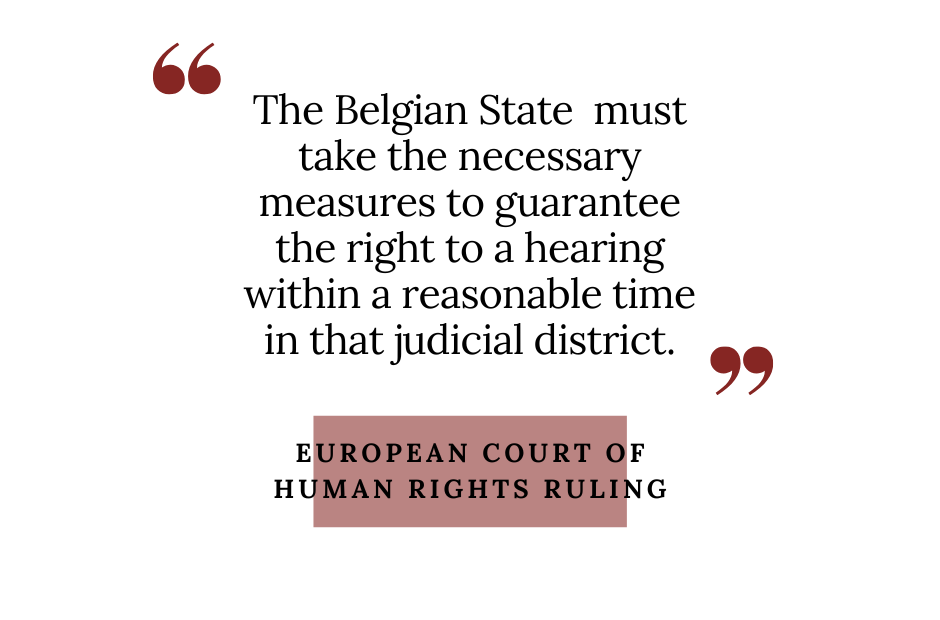In a case concerning the length of civil proceedings pending before a Brussels court, the European Court of Human Rights (ECHR) ruled that this stems from a structural problem that Belgium must address.
In the case of Van den Kerkhof v. Belgium, concerning civil proceedings that have been pending before a court of the Brussels judicial district since 2015, the European Court found a violation of Article 6 § 1 (right to a fair hearing within a reasonable time) of the European Convention on Human Rights.
"The European Court found that the problems in connection with the excessive length of proceedings in the Brussels judicial district were structural in nature and it was for the Belgian State to take the necessary measures to guarantee the right to a hearing within a reasonable time in that judicial district," the ECHR noted in a statement.
'Dysfunction of the judiciary'
The case before the French-language Brussels Court of First Instance were brought by the applicant, Tom Van den Kerkhof, and concerns the sale of a flat, which the plaintiff considers to be null and void due to a defect in consent. The case was brought in 2015 and was first heard in 2017.
The request was denied, a ruling appealed by Van den Kerkhof. This was followed by several years of the case being delayed for a series of reasons. In 2018, when the case was ready for hearing on appeal, Van den Kerkhof was told that his case was on a waiting list and that a date may not be set before March 2026.
He lodged a complaint with the National Council of Justice, which found that the delays in the applicant's case reflected a "dysfunction of the judiciary." He also served the Ministry of Justice with formal notice to take the necessary measures to reduce the excessive waiting time.
In 2021, the Court issued a ruling and declared the appeal unfounded, confirming the 2017 judgment. The case was referred back to the French-speaking court in Brussels and a hearing was scheduled for March 2022. However, this was also postponed until November 2023 due to the absence of the titular judge and the lack of effective judges.
Impeding protection of rights
Seven years and eight months have elapsed for two levels of jurisdiction and the proceedings are still pending. The judgment highlighted that the problems relating to the excessive length of proceedings in the Brussels judicial district are of a structural nature and do not relate solely to the applicant's personal situation.
The ECHR emphasised that the State was responsible for the delays attributable to their legal systems and it was first and foremost for the national courts to secure respect for protecting the rights guaranteed by the Convention. "This system cannot function properly in the absence of domestic justice delivered within a reasonable time."
"The Court considers that it is incumbent on the Belgian State to take the necessary measures to guarantee the right to be tried within a reasonable time in the Brussels judicial district," it concluded. The Belgian State must pay the applicant €5,000 for non-pecuniary damage.
Both sides now have three months within which they can ask for the case to be referred to the Grand Chamber of the ECHR for a final ruling.


